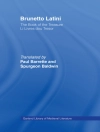The rich contemporary literature of travel has been the focus of numerous recent publications in English that seek to understand how travel narratives, with their distinctive representations of identities, places, and cultures, respond to today’s globalized, high-speed world characterized by the dual mass movements of tourism and migration. Yet a corresponding cutting-edge discussion of twenty-first-century travel writing in German has until now been missing.
The fourteen essays in
Anxious Journeys redress this situation. They analyze texts by leading authors such as Felicitas Hoppe, Christoph Ransmayr, Julie Zeh, Navid Kermani, Judith Schalansky, Ilija Trojanow, and others, as well as topics such as Turkish-German travelogues and the relationship of comics to travel writing. The volume examines how writers engage with classic tropes of travel writing and how they react to the current sense of crisis and belatedness. It also links travel to ongoing debates about the role of the nation, mass migration, and the European project, as well as to Germany’s place in the larger world order.
Contributors: Karin Baumgartner, Heather Merle Benbow, Anke S. Biendarra, John Blair and Muriel Cormican, Nicole Coleman, Carola Daffner, Christina Gerhardt, Nicole Grewling, Gundela Hachmann, Andrew Wright Hurley, Christina Kraenzle, Magda Tarnawaska Senel, Monika Shafi, Sunka Simon.
Karin Baumgartner is Professor of German at the University of Utah. Monika Shafi is Elias Ahuja Professor of German at the University of Delaware.
Cuprins
Introduction – Monika Shafi and Karin Baumgartner
PART I. MIGRATION AND REFUGEES
Travel and Trauma in Post-1989 Europe: Julya Rabinowich’s
Die Erdfresserin and Terézia Mora’s
Das Ungeheuer – Anke S. Biendarra
Europe, the Middle East, and Identities in Transition: Navid Kermani’s
Einbruch der Wirklichkeit. Auf dem Flüchtlingstreck durch Europa – Magda Tarnawska Senel
PART II. TRAVELERS AND TOURISTS
Around the World in Seventy Stories: Christoph Ransmayr’s
Atlas eines ängstlichen Mannes – Monika Shafi
The Political Tourist in Juli Zeh’s
Die Stille ist ein Geräusch – Nicole Coleman
Transnational Turkish-German Travelogues: Turkish-German Women Writers’ Millennial Travel Narratives – Heather Merle Benbow
The End of Travel in Sibylle Berg’s
Wunderbare Jahre and Rolf Niederhauser’s
Seltsame Schleife – Karin Baumgartner
PART III. EXPLORATION AND NOSTALGIA
Disappearing Act: Felicitas Hoppe’s
Hoppe and Australian Myths – Andrew Wright Hurley
‘Always conceal . . . tthy tenets, thy treasure, and thy travelling.’ Irony and Ambiguity in Ilija Trojanow’s Travel Narratives About the Middle East – Gundela Hachmann
PART IV. TRAVELING THROUGH MENTAL LANDSCAPES
Walking in Circles: Josef Winkler’s
Mutter und der Bleistift (2013) – Carola Daffner
Into Thin Air: Extreme Landscapes, Self-Discovery, and Narrative in Christoph Ransmayr’s
Der fliegende Berg – Nicole Grewling
The Atlas as Travel Writing and as Post-Colonial Critique: Judith Schalansky’s
Atlas of Remote Islands – Christina Gerhardt
PART V. VISUAL AND SONIC JOURNEYS
Graphic Journeys: Travel Writing and the Medium of Comics – Christina Kraenzle
Travel’s Utopian Potential in Andrea Grill’s
Liebesmaschine N.Y.C. – John Blair and Muriel Cormican
Heimat: Diaspora-Ulrich Seidl’s
Paradies: Liebe – Sunka Simon
Notes on the Contributors
Index
Despre autor
MURIEL CORMICAN is Professor of German at the University of West Georgia. She is the author of Women and Gender in the Works of Lou-Andreas Salomé (CH, 2009).












